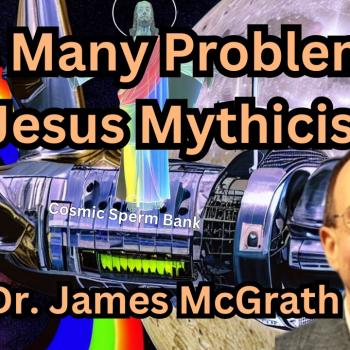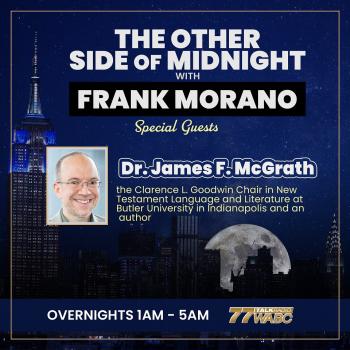It is funny that some mythicists think that, in pointing out that there are lots of different scholarly proposals about Jesus, they are making a profound observation, and even providing evidence that something is fundamentally wrong with the methods historians currently use.
 On the one hand, historical details are capable of being interpreted in multiple ways, and unless we were to declare a moratorium on historical investigation of Jesus, then the only way scholarship can continue to be done is by offering new proposals. If there were the amount of interest in another figure from history that there has been and continues to be in Jesus, we would have much the same state of affairs in the historical investigation of that figure.
On the one hand, historical details are capable of being interpreted in multiple ways, and unless we were to declare a moratorium on historical investigation of Jesus, then the only way scholarship can continue to be done is by offering new proposals. If there were the amount of interest in another figure from history that there has been and continues to be in Jesus, we would have much the same state of affairs in the historical investigation of that figure.
But on the other hand, mythicism is far from uniform. Some mythicists say that Jesus was a figure derived primarily from scriptural interpretation. Others say that Jesus was a figure derived primarily from religious experiences. At least one says he is an invention of the Romans trying to stabilize their rule over the Jews. Some think the Gospels are astrotheological allegories. And some say that Jesus as depicted in the Gospels is a pastiche of multiple figures.
That last suggestion has found a proponent in Daniel Unterbrink, who has written a number of books, including Judas of Nazareth: How the Greatest Teacher of First-Century Israel Was Replaced by a Literary Creation. In it, he claims that Jesus is a combination of Judas of Galilee and Paul’s celestial Christ.
It is ironic that mythicists treat the fact that scholars are not unanimous as evidence that something is wrong (as though there were genuine unanimity in any field of scholarly inquiry), when it is rare to find two mythicists the precise details of whose viewpoint is the same. To quote Richard Carrier, even though I do not find the first part of his statement persuasive for reasons indicated above, “A field that generates dozens of contradictory conclusions about the same subject is clearly bereft of anything like a reliable method. But the very same flaw befalls the mythicists, whose community is likewise plagued by dozens of completely contradictory theories of the Jesus myth. If such a state is a scandal for historicity (and it should be), it is equally a scandal for mythicism” (Richard Carrier, On The Historicity of Jesus, p.11).
For more on mythicism, see Simon Joseph’s recent post, “Dispelling the Jesus Myth.”
Of related interest, John Dickson has offered to eat his Bible raw if anyone can point to a full professor in a relevant field at an accredited university who thinks Jesus did not exist. Get some popcorn (or salted Bible pages, if you prefer). This ought to be good.













